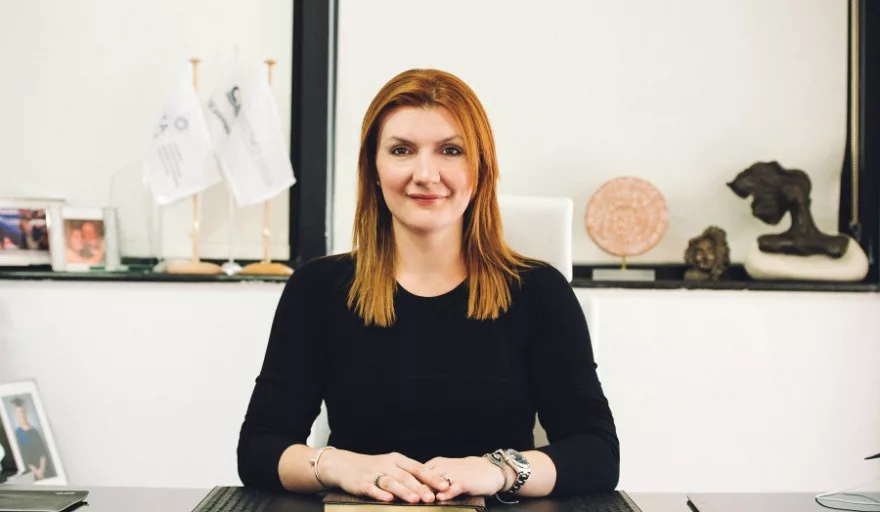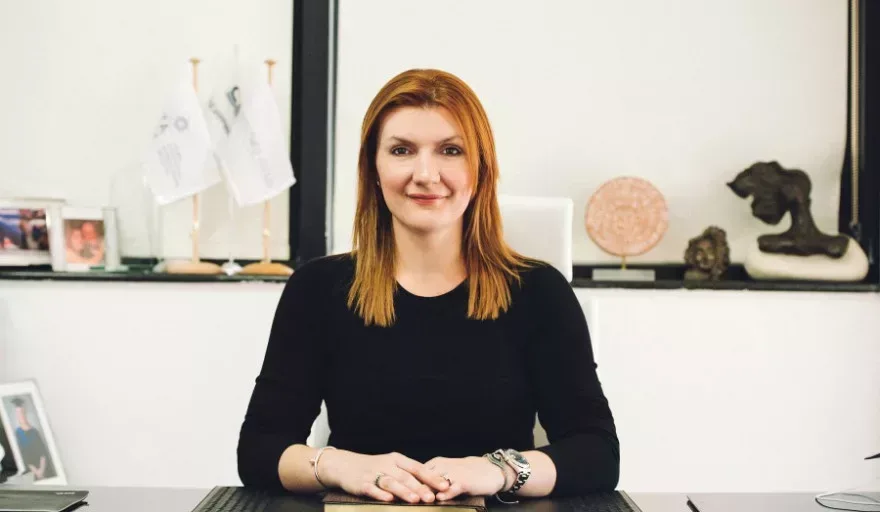
There are 1.2 million seafaring workers in the world, and just one in 50 of them are women.
From fishing vessels to freighter ships, the oceans have been a vital source of economic activity and employment for many centuries, their position within a global multimodal network of transport still critical today.
However, given how entrenched maritime activity has become in modern society, it is somewhat alarming to discover that 98 percent of seafarers are male. The on-shore situation is not quite as stark, but even here just a third of land-based maritime workers are women.
Times have moved on since the days when women were banned from sailing on merchant and military vessels (their presence believed to have angered the sea gods), but the gender imbalance in today’s seafaring economy appears to be lagging significantly behind.
In Africa the situation is no different, and it is for this reason that Clare Gomes got involved with the Women’s International Shipping and Trading Association (WISTA International) in the early 2000s.
A background in publishing led her to join marine solutions provider Pentow Marine in Cape Town in 1999 as a public relations officer, the nature of the role allowing her to dive straight into the nuances of the industry because of the need for crisis communications during salvage and emergency operations.
Last year she became President of the South African branch of WISTA.
“Together with other industry role-players, I was involved with WISTA when it was active in South Africa in the early 2000s,” Gomes recalls. “In 2018 I was struck by the need for a professional association for women in business in the maritime industry in South Africa, against the backdrop of rising dialogue globally about inclusivity in the sector.
“I also noticed that the world map on the WISTA website was empty in the Southern African region – and that had to change given the depth of talented women in the industry here. I am a strong implementer and like to turn ideas into reality, so invested the effort to do just that. We now have an active WISTA South Africa chapter in Cape Town.”
Gomes is quick to praise the talented team of professional women who are working tirelessly to strengthen the WISTA South Africa network, which is also about optimising opportunities for the economic growth of the country’s maritime industry.
Indeed, it is a journey which is already picking up the pace.
“My personal intent is to establish WISTA South Africa with a strong foundation and ensure that it is sustainable for future maritime leaders to drive and develop, supporting inclusivity in the workplace,” Gomes adds.
“And I really want women to make strong connections as a result of WISTA South Africa networking and grow their businesses, impacting job creation and sustainability of the sector. It is starting to gain momentum, and that is very exciting.”
Building on progress
Despite the striking figures cited at the beginning, Gomes has observed an uplift in the number of women in management and leadership positions during her time in the maritime sector.
While the overall number of women working in the industry remains low, she has noticed female professionals making an impact across all subsectors, as well as an emergence of women-owned shipping enterprises in niche areas like offshore bunkering.
From port managers, ship’s agents and maritime lawyers to surveyors, fuel brokers and ship auctioneers, women are contributing to a huge range of roles across this multifaceted trade.
The next step is to build on this foundation and encourage more females into the shipping and maritime profession.
Asked how this can be achieved, Gomes responds: “Firstly, I think we need to be realistic when we communicate about the challenges and opportunities of working in the maritime sector – at sea and ashore. We also need to expand the understanding of opportunities for rewarding careers in our sector which are ashore and not only at sea.
“And then we need to encourage women to join us in this space and share their skills and competencies with our sector, which needs the innovation, entrepreneurial thinking and norm-challenging approach of younger generations. If we highlight role models of both genders in our sector – leaders who inspire excellence and can paint a clear vision for the future – it will become an attractive career option, with many ways to come onboard.
“We also need to invest time as professional women of influence in our respective organisations to ensure that workplace policies and practices support inclusivity. This is a very important part of creating a conducive environment.”
In regard to the latter point, Gomes has been busy with WISTA on a number of programmes.
For example, the organisation has partnered with the South African International Maritime Institute and other stakeholders involved in the Women Dive In initiative, a campaign designed to create career awareness by engaging with students.
WISTA is also in regular dialogue with the Department of Transport and will be an active participant in World Maritime Day events in September 2019, the theme for this year being Empowering Women in the Maritime Community.
These evolving trends and activities leave Gomes optimistic about the wider development of South Africa’s shipping industry.
Summing up her thoughts on the future state of the profession, she concludes: “There are economic challenges our country and sector face, but I am also confident about the many factors that see South Africa uniquely positioned (geographically, regionally, internationally) to benefit from significant regional economic growth as a result of LNG in Mozambique, offshore exploration and other potential prospects.
“I think that women can drive the connections required for different companies and organisations – both public and private – to work together to take advantage of this potential growth. And it is exciting that we have a growing WISTA footprint in Africa, and the wisdom of well-established chapters in Ghana and Nigeria to tap in to.”
An international view
Despina Theodossiou is President of WISTA International, this having established the Cypriot branch of the organisation, joining together with other women in the industry who wanted to build a networking platform. We asked her some quickfire questions…
What do you want to achieve with the association?
“Firstly, I want to grow WISTA geographically. As a global association, our leverage is in our multi-culturalism and different countries and regions bring different points of view and strengths to the table. During my tenure we have expanded in South America, Asia and Africa.
“Secondly, I want stronger collaborations with other organisations, and of course, for the discussion to be more than diversity per se – WISTA is looking into issues that are currently important to maritime industries, like the advent of new technologies.
“My ultimate vision? To mainstream the issue of diversity in our industry. We have an industry of opportunity in a time of change, and WISTA’s voice will be there, as a valued industry body.”
What is the organisation’s footprint like in Africa?
“There are currently four national WISTA Associations in Africa – Ghana, Morocco, Nigeria and South Africa. We are currently working on a few more and we hope that soon they will come to fruition. It is certainly one of my goals to grow our membership in Africa as there is a lot of opportunity and many educated, senior level women who can be role models and trailblazers for younger women in the industry.”
How can more women be encouraged to pursue a maritime career?
“Shipping has historically been a male-dominated field, but this is slowly changing. Women are not only working in the industry, they are moving up the ranks and are role models for younger women who are looking to shipping as a career choice. It is certainly not easy, and it is true that women still do not have the same opportunities as men. The new roles emerging in the industry and the latest technologies present an opportunity for women, and we should make sure we are embracing these and promoting them. WISTA is a part of this change, and we give our members the chance to create business relationships, to network and learn.”
Are you optimistic for the future of the industry and the role women can play in developing it?
“I am. There are challenges for sure, but shipping is centuries old and it is a sector that the world economy heavily relies on. It is dependable and beneficial to consumers as it is more cost efficient compared to other modes of transport. Vessel connectivity has progressed to such an extent that now the ship is considered an extension of the shore office with all the opportunities that this can offer.
“You ask the role that women can play, but I will answer about the role that all people – equally and fairly – can play. Diversity brings innovation. The maritime sector is always changing, therefore we must build opportunities for diversity and inclusion, for professional development moving forward. These are powerful tools which support the emergence of new ideas focused on a positive future for our industry.”






























